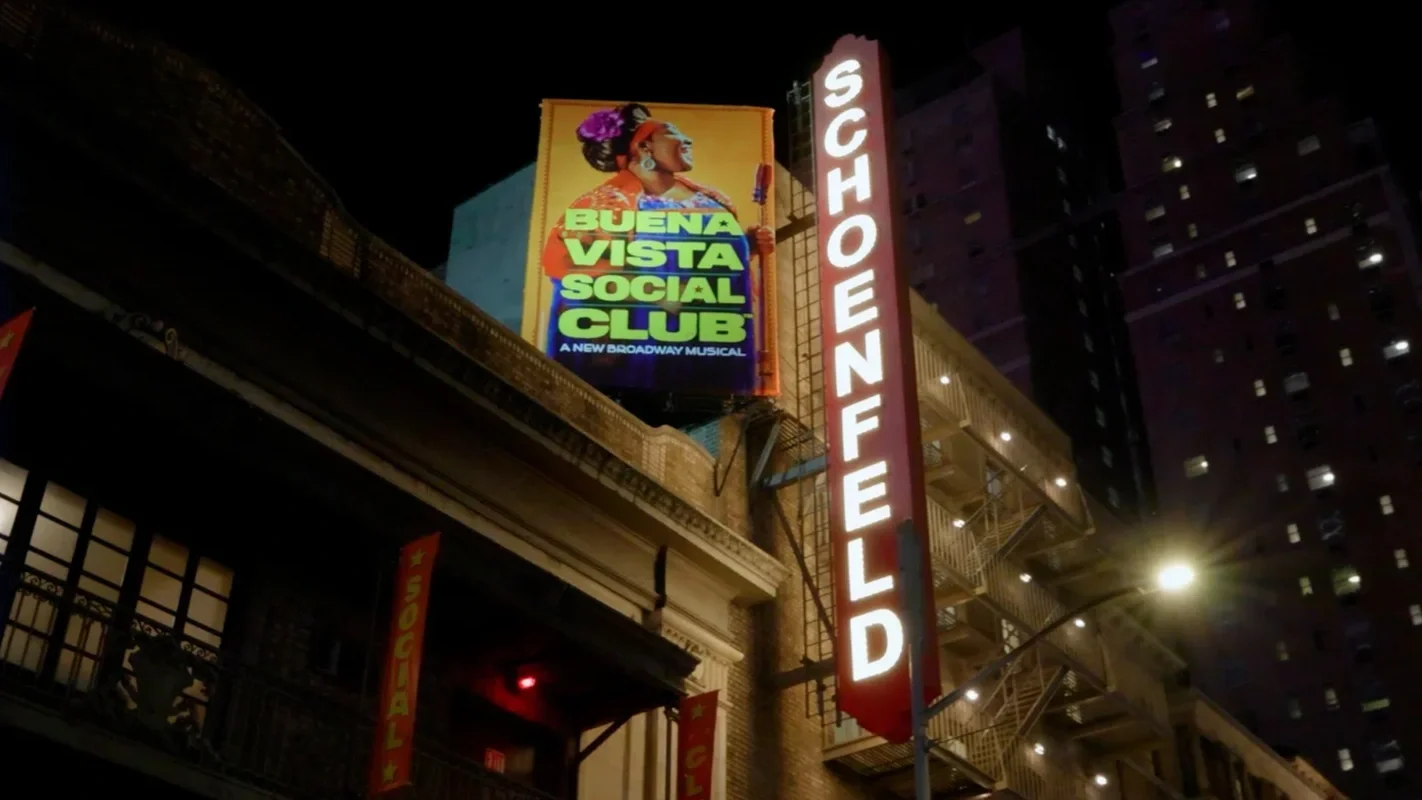Buena Vista Social Club’s Pursuit of Authenticity and Memory
(Photo/Buena Vista Social Club at Schoenfeld Theater/NBC)
By Bridgette Lang
As someone far removed from the Broadway scene, I walked into Buena Vista Social Club knowing almost nothing about it. Immediately, I was drawn to the fact that it was a musical rooted in real history, a rarity in a world of make-believe stories and glitzy-but-underwhelming adaptations. Buena Vista Social Club tells a semi-fictionalized account of the legendary Cuban musicians behind the 1997 Grammy-winning album. Set both in the 1950s and 1990s, we learn about the characters from the inception of the Castro government to modern Cuba and how their lives have changed. As the night unfolded, two other things stood out: the crowd and the show’s authenticity.
The audience was unlike any I’d seen before. They cheered, laughed, and clapped along. At the few other Broadway shows I’ve attended, audiences tended to be fairly quiet, but here, the performers actively invited the audience in, making them feel like part of the show. This was especially true for the musical parts of the show, which featured traditional Cuban styles like son, bolero, danzón, and mambo. The musicians brought an infectious energy to the stage, which brushed off on all of us sitting in the audience. While the atmosphere may vary from performance to performance, the crowd I was with was both respectful and joyful. Their clapping, smiles, and even tears showed how deeply they were moved by the show and the music.
That sense of belonging ties directly to another strength of the show: its authenticity. Although the dialogue was mostly in English, all the music remained in Spanish. This definitely set it apart from other Broadway productions that are almost exclusively in English, regardless of the origin of the show. While adaptations are sometimes necessary depending on the audience, preserving the music in its original language was no mistake. Doing so made the performance feel honest.
I walked in without expectations and left pleasantly surprised. I’d recommend the show to anyone who, like me, doesn’t typically consider themselves a big fan of theatre. While the political turmoil of the time period could have been covered more vividly and explicitly, it was incredibly valuable to learn about the people that were impacted by the Cuban Revolution and what their lives were like before. Buena Vista Social Club made me rethink what a musical could and should be: a tribute to those who paved the way for us and a reminder that music is about preserving memory.

